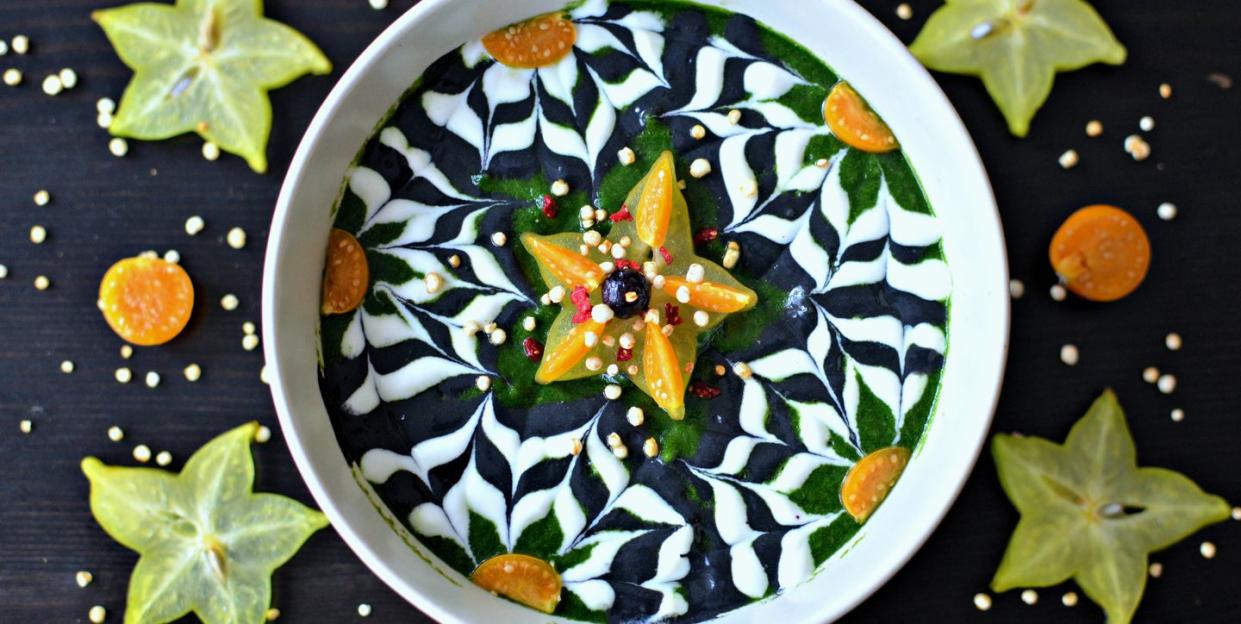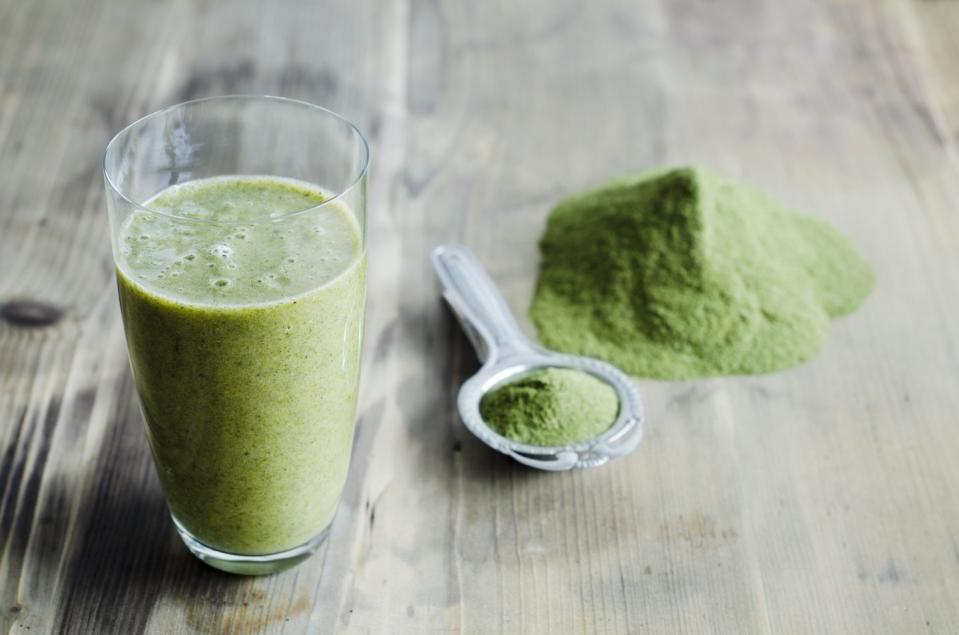Is this trendy superfood even better for you than kale?

There always seems to be a new superfood powder catching our eyes. In a world of matcha tea and turmeric lattes, it’s no surprise that moringa smoothies have finally made their way to our Instagram feeds.
But this trendy green doesn’t stop at your morning shake. Moringa is being added into oatmeal, soups, and even baked goods, too. Some brands claim that it’s more nutritious than kale-but is that really true? Or is moringa just another plant powder having its moment in the spotlight? Here’s everything you need to know about moringa powder before your try it for yourself.
A post shared by Terra Isla Organics (@terraisla) on May 23, 2018 at 4:48pm PDT
What is moringa powder?
Native to India, Moringa oleifera is a plant that is often called the drumstick or miracle tree. It’s a highly cultivable crop that is also grown in tropical areas of Asia, Africa, and South America, making it a remedy for common health problems (like malnutrition) in less developed countries. The leaves of the plant can be eaten raw or cooked, but the moringa you see on store shelves is typically in powder or capsule form, and is derived from harvesting, drying, and milling the moringa leaves.
“Moringa has been used in folk medicine for many years,” explains Toby Amidor, dietician and author of The Easy 5-Ingredient Healthy Cookbook. “Proponents claim that moringa can help with diseases, such as heart disease, diabetes and HIV/AIDS.”
That’s because moringa is extremely nutritious. The plant packs in vitamin A, calcium, iron, potassium, and some fiber, explains nutritionist Marisa Moore. She adds that the moringa root, seeds, flowers, and leaves also have varying levels of healthy fats and disease-fighting flavonoids.
It’s true that raw moringa leaves contain various nutrients-but its profile is still quite similar to raw kale leaves. Plus, you’ll find a smaller amounts of all those vitamins and minerals in a tablespoon of moringa in its powder form.
So, does moringa powder live up to its health claims?
Since it contains lots of antioxidants, vitamins, and minerals, moringa boasts a bit of a health halo. Some common claims? It could lower your blood pressure, prevent cancer, help your eye health, strengthen your bones, and the list goes on.
That sounds great-but unfortunately, the human research on moringa is lacking.
“A 2012 review paper published in Frontiers in Pharmacology determined that although moringa may have some potential in assisting with diabetes and heart disease, there is insufficient scientific research and data to show the safe dosage of moringa and its side effects,” says Amidor, since many of these studies are conducted using concentrated forms of moringa.
Moore agrees, but she notes that preliminary studies show that moringa may offer small improvements in menopausal symptoms, like insomnia and hot flashes.
Other studies point to the plant’s cancer-fighting potential, but unsurprisingly, human trials on cancer patients are lacking. There is some evidence that compounds in the moringa plant (like the leaves and bark) may contain anti-cancer properties that could be useful in future breast and colorectal cancer treatments. Another study proposes that moringa leaf extract can inhibit the growth of pancreatic cancer cells.
Still, it’s important to note that much of this research is in its early stages and uses more moringa than you’d typically eat in a day. More studies need to be done before any definite claims can be made about moringa’s ability to fight disease.
What's the best way to try moringa powder?

Moringa isn’t a miracle cure-all, but it seems to be just as good for you as any other antioxidant-rich fruit or veggie.
“I would recommend adding the powder to smoothies, muffins, protein or granola bars, or quick bread. It has a strong vegetal flavor that works well in savory dishes or in recipes with natural sweetness,” says Moore. If you’re curious about giving moringa powder a try, whipping up this tropical green smoothie is a good place to start.
Moringa Smoothie Recipe
½ frozen banana
½ cup frozen peaches
1/3 cup plain Greek yogurt
½ cup milk (dairy, soy or nut)
½ cup coconut water
1 tablespoon moringa
('You Might Also Like',)


